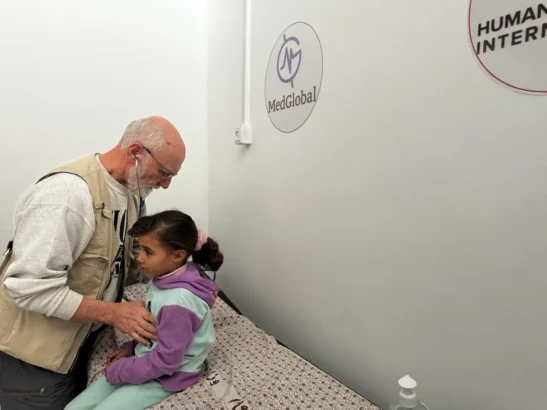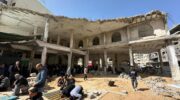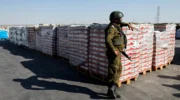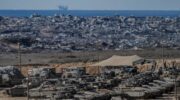As a doctor with more than 25 years of experience in crisis zones, I believed I had seen the worst. Then I went to Gaza.
by Dr. John Kahler, reposted from USA Today, August 16, 2024
While U.S. and international mediators continue to try to get the Israeli government and Hamas to agree to a cease-fire in Gaza, the appalling war there continues to take a devastating toll on innocent Palestinian civilians. We saw its effects once again last Saturday, when nearly 100 Palestinians, including women and children, were killed by an Israeli airstrike on a school shelter.
A cease-fire is desperately needed, but I know through firsthand experience in Gaza that it would only be the beginning of a necessary healing process that could last many decades.
I am a pediatrician with more than 25 years of experience in crisis zones. I believed I had seen the worst. My multiple medical deployments to Gaza this year with the humanitarian aid organization MedGlobal shattered that belief.
The destruction I witnessed was not only physical but also deeply systemic, targeting the very fabric of life in Gaza: its health care, its infrastructure and, most tragically, its children.
Children of Gaza need a cease-fire, but that’s far from sufficient
I first visited Gaza in 2019 to help expand the children’s ward at Nasser Hospital in Khan Younis. But when I returned last January, the situation had dramatically worsened: More than 1.2 million refugees were crammed into Rafah, without access to water or electricity.
At night, driving in the dark past masses of displaced children and women filling every inch of space, it felt like a scene from a post-apocalyptic nightmare.
By my second deployment in March, the situation was even more dire. Rafah’s population had swelled to 1.6 million, with about 56,000 people per square kilometer. The conditions were unbearable: People crammed into every inch, overwhelmed sanitary facilities and garbage piling up unchecked. A day trip to Gaza City, farther north, revealed destruction so severe that I couldn’t even recognize places I used to visit, like the university campus.
Will Palestine exist when war is over? A mother’s answers to her children’s questions.
In Rafah, I worked in a makeshift clinic with three MedGlobal colleagues, treating up to 700 patients a day under constant bombardment. I saw parents unable to feed their children, knowing that even if they could, the damage of malnutrition was already done.
More than 2 million people live in the Gaza Strip, and about 96% are on the brink of starvation.
This isn’t just about lack of calories − it’s about the destruction of an entire generation’s future. Children starved from birth will bear the scars of this trauma for life, physically and mentally.
History tells us what happens to kids who survive trauma and starvation
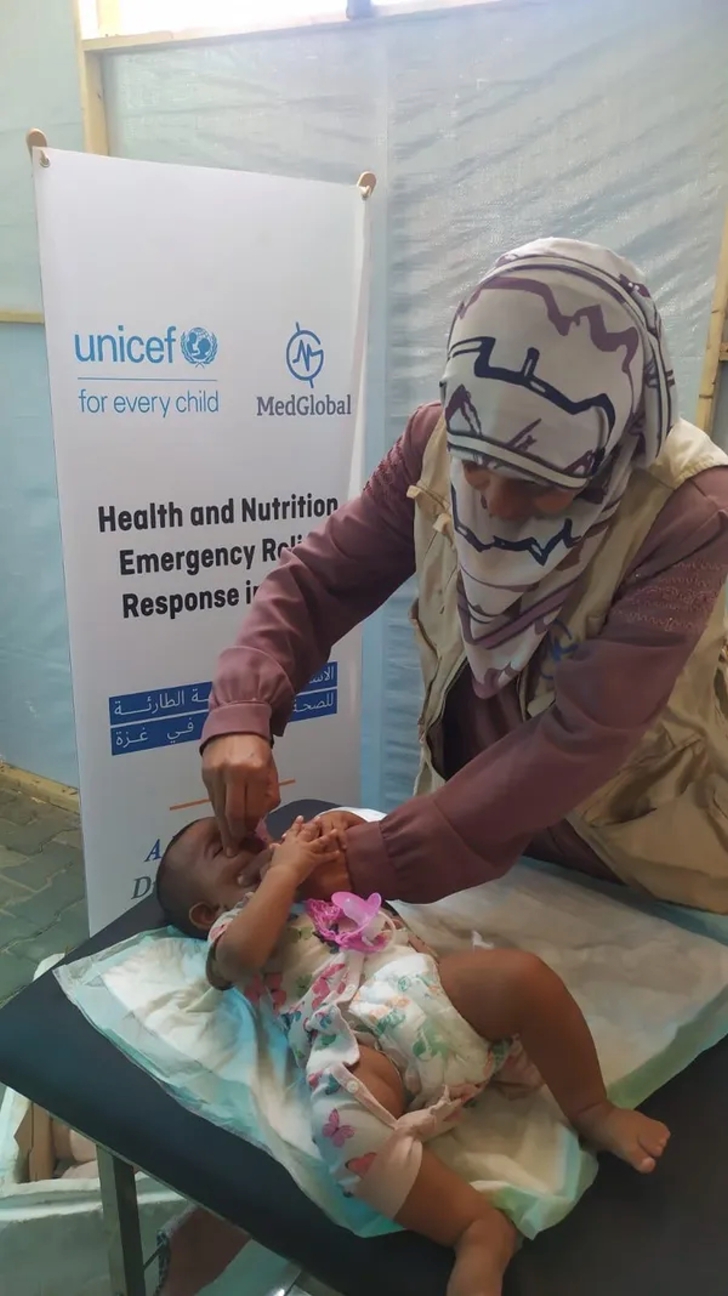
We know from studies of similar crises, such as the Dutch famine of 1944-45, that these children face higher risks of metabolic disorders, mental health issues and reduced life expectancy. These effects are manifest for at least two generations to follow.
A large number of children I treated in Rafah suffered from presumed hepatitis A. Virtually 100% had diarrhea − a leading cause of death among young children.
The recent detection of the polio virus in wastewater samples highlights the total collapse of Gaza’s sanitation and health care system. While Gaza’s population is relatively well immunized against polio, outbreaks of diseases such as measles or cholera could result in mass deaths, as we saw in Haiti.
The decimation of the health care system, coupled with an estimated 90% of Gazans being displaced, already lead to deaths going unnoticed.
‘We will get you home’: Doctors in Gaza struggle to save lives as Israel bombs nearby
Displaced pregnant women are dying quietly in their tents, unable to access the care they need to survive childbirth. People with treatable illnesses are dying because there’s no medicine, no hospital bed, no doctor to help them. These deaths aren’t always reported, but they’re happening.
The Lancet scientific journal published a study last month estimating that “186,000 or even more deaths could be attributable to the current conflict in Gaza.” That’s more than four times higher than the official estimate from Gaza’s Health Ministry: Over 40,000 Palestinians have been killed since the Israel-Hamas war began Oct. 7.
The situation is exacerbated by the near-total blockade of aid.
When we crossed into Gaza through Rafah in March, I could see the trucks filled with lifesaving supplies just beyond the border, yet they mostly remained out of reach. When I attempted to enter Gaza for the third time in May with other MedGlobal volunteer doctors, we were denied entry as the Israeli army moved into Rafah. MedGlobal colleagues on the ground report that the situation is deteriorating rapidly.
Since the Rafah crossing was sealed in May, delivering aid to Gaza has become even more difficult.
My heroic colleagues in Gaza have had to flee repeatedly − from Gaza City to Khan Younis, then to Rafah, al-Mawasi and finally to Deir al-Balah. One of our staff members died due to Israeli shelling.

The world is focused on the visible destruction and the immediate loss of life. But the true scale of this tragedy will only become clear “the day after.” Gaza’s collapsing health care system, the starving children and the deep, lasting trauma inflicted on an entire generation are all part of the same, ongoing catastrophe.
We must act now to end the blockade, allow aid to reach those who need it and begin the long process of rebuilding.
The children of Gaza deserve more than just survival − they deserve a future.
Dr. John Kahler is the co-founder of MedGlobal, an international humanitarian aid organization. He has decades of experience as a pediatrician and contributor to humanitarian aid work around the world.
RELATED ARTICLES:
- More dead children. More BBC ‘news’ channelling Israeli propaganda as its own
- Searching for Gaza’s missing children
- ‘Disappeared, buried, detained’: The horrors of Gaza’s missing children
- ‘Suffering horrifically’: 10 months of Israel’s ‘war on children’ in Gaza
- ‘Not a normal war’: doctors say children have been targeted by Israeli snipers in Gaza

